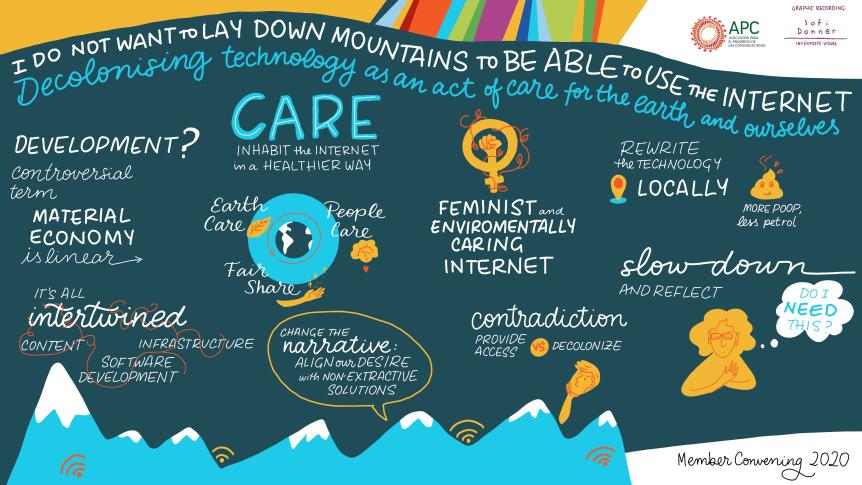
APC partner and close ally Sursiendo is very excited to present two publications that were the result of the hackfeminist meeting “Technology and affections: How to outline policies of [co]responsibility”. The meeting was held in Chiapas, Mexico in July 2019 and co-organised with Instituto de Liderazgo Simone de Beauvoir and Tecnológico de Monterrey.
The Spanish versions were published in 2019 and are now available in English.
Technoaffections investigates the politics of shared responsibility and speaks to our first relationships with technology through memory, feelings and emotions. Arising from the hackfeminist gathering, the 12 chapters unpack the politics of shared responsibility as creative and collaborative, rooted in experiences of land defence, feminism and social movements. How do we build ethical and fair practices to ensure that our use of technologies respects the environment?
Let us imagine contains hackfeminist writings for alternative technologies that look at relationships between ideas of love, work, alternative economies and memory that teach us about care to arrive at strategies that nurture our communities. This collection of 20 writings from participants are a rich and diverse collection of thoughts and creativity about the politics of shared responsibility for people and the Earth.
The journey thus far
In July 2019, 26 women from diverse backgrounds met together in Chiapas, Mexico for three days in a hackfeminist meeting on technology and affections to imagine a principle for a feminist internet that centred care for the body, the self, the land – a principle that speaks to promoting respect for human and collective rights and that weaves policies of co-responsibility and interconnection to all life and land.
The wisdom and magic from this gathering fed into two more moments where a wider group of people shared experiences, dreams, struggles and grief and suggested steps, grounded in feminist action, towards an internet that respects all life. The first was a session during the APC member convening in October 2020 entitled “I do not want to lay down mountains to be able to use the internet: Decolonising technology as an act of care for the Earth and ourselves". In November, at the 2020 Internet Governance Forum (IGF), APC and Sursiendo co-hosted a Day 0 event called “Environmental justice and an anti-extractive internet: Impacting policy through developing a feminist principle”.
A new feminist principle of the internet
In 2019, APC also supported a two-day Local FPI Conversation focusing on extractives and environmental justice as a way to start the journey towards developing a feminist principle of the internet on the environment. We are deeply grateful to the convenors for the depth of embodied wisdom, care and experience brought to this process.
The Feminist Principles of the Internet (FPIs) are a series of statements that offer a gender and sexual rights lens on critical internet-related rights. Currently there are 17 principles in total, available in 11 languages and organised in five clusters: access, movements, economy, expression and embodiment. Together, they aim to provide a framework for women's movements to articulate and explore issues related to technology.
A thematic report written by Jes Ciacci of Sursiendo for the 2020 edition of Global Information Society Watch (GISWatch) captured the process and the draft FPI on the environment. This is an ongoing journey as APC, through the Technology, environmental justice and sustainability project and the APC Women’s Rights Programme, alongside digital rights, environmental and feminist allies, works towards finalising an FPI on the environment.
Here is the draft FPI on the environment:
A feminist internet respects life in all its forms; it does not consume it. Our proposal for a feminist internet principle in relation to the environment resignifies care towards an ethics of collective care in choices around design, extraction, production, consumption and disposal of the technologies involved.
Later this year, we plan to gather feminists working on land and environmental justice, digital rights and the internet and extractives to finalise this 18th FPI and work out ways of integrating this into wider environmental justice discussions and actions.